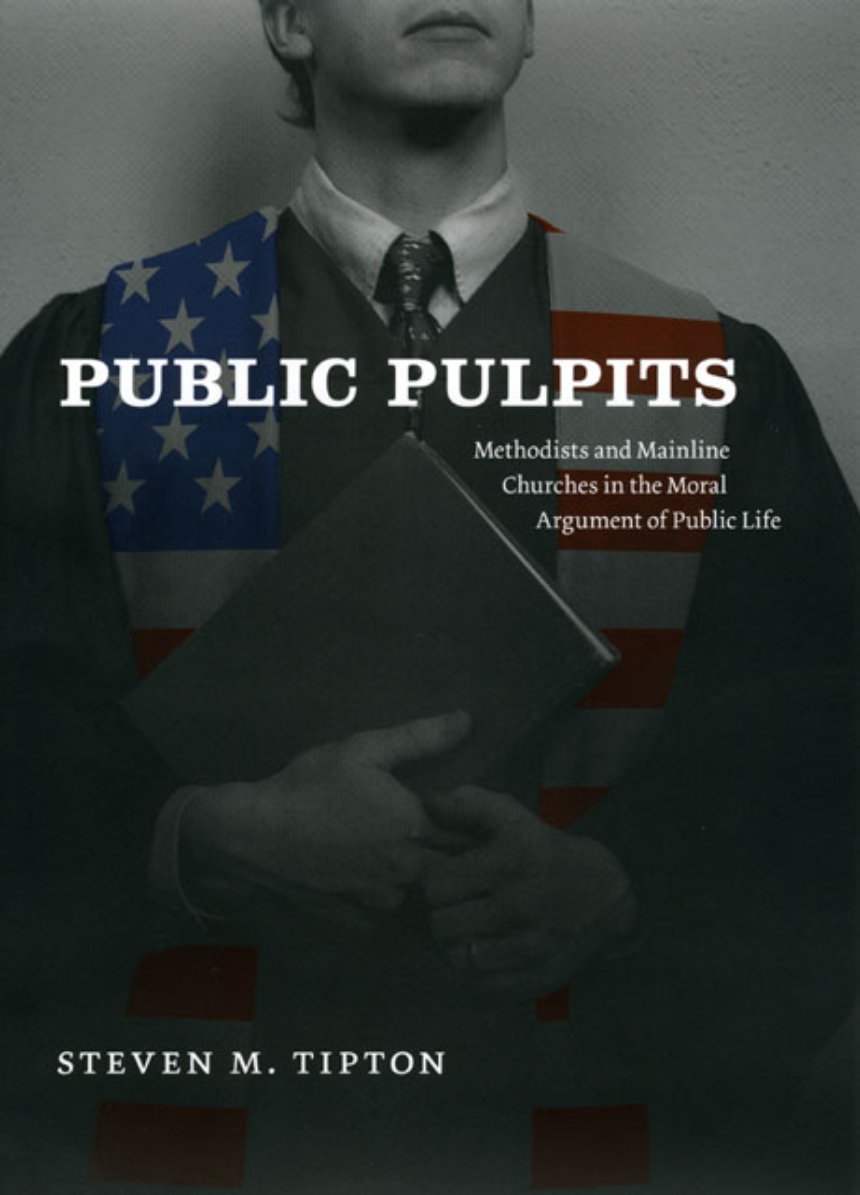Public Pulpits
Methodists and Mainline Churches in the Moral Argument of Public Life
9780226804743
9780226804767
Public Pulpits
Methodists and Mainline Churches in the Moral Argument of Public Life
Since the 2000 presidential election, debate over the role of religion in public life has followed a narrow course as pundits and politicians alike have focused on the influence wielded by conservative Christians. But what about more mainstream Christians? Here, Steven M. Tipton examines the political activities of Methodists and mainline churches in this groundbreaking investigation into a generation of denominational strife among church officials, lobbyists, and activists. The result is an unusually detailed and thoughtful account that upends common stereotypes while asking searching questions about the contested relationship between church and state.
Documenting a wide range of reactions to two radically different events—the invasion of Iraq and the creation of the faith-based initiatives program—Tipton charts the new terrain of religious and moral argument under the Bush administration from Pat Robertson to Jim Wallis. He then turns to the case of the United Methodist Church, of which President Bush is a member, to uncover the twentieth-century history of their political advocacy, culminating in current threats to split the Church between liberal peace-and-justice activists and crusaders for evangelical renewal. Public Pulpits balances the firsthand drama of this internal account with a meditative exploration of the wider social impact that mainline churches have had in a time of diverging fortunes and diminished dreams of progress.
An eminently fair-minded and ethically astute analysis of how churches keep moral issues alive in politics, Public Pulpits delves deep into mainline Protestant efforts to enlarge civic conscience and cast clearer light on the commonweal and offers a masterly overview of public religion in America.
Documenting a wide range of reactions to two radically different events—the invasion of Iraq and the creation of the faith-based initiatives program—Tipton charts the new terrain of religious and moral argument under the Bush administration from Pat Robertson to Jim Wallis. He then turns to the case of the United Methodist Church, of which President Bush is a member, to uncover the twentieth-century history of their political advocacy, culminating in current threats to split the Church between liberal peace-and-justice activists and crusaders for evangelical renewal. Public Pulpits balances the firsthand drama of this internal account with a meditative exploration of the wider social impact that mainline churches have had in a time of diverging fortunes and diminished dreams of progress.
An eminently fair-minded and ethically astute analysis of how churches keep moral issues alive in politics, Public Pulpits delves deep into mainline Protestant efforts to enlarge civic conscience and cast clearer light on the commonweal and offers a masterly overview of public religion in America.
496 pages | 6 x 9 | © 2008
History: American History
Religion: American Religions, Christianity, Religion and Society
Sociology: Social Change, Social Movements, Political Sociology, Social History, Social Institutions
Reviews
Table of Contents
Preface
Introduction
Chapter 1. Faith in Public: Going to War in Iraq and Doing Good at Home
Chapter 2. Civic Republic and Liberal Democracy: Religion in an Ambiguous Polity
I: Contesting Church and Society
Chapter 3. United Methodism in Crisis: Prophetic Witness through the Board of Church and Society
Chapter 4. United Methodism in Crisis: Scriptural Renewal through the Good News Movement
Chapter 5. Faith and Freedom: The Institute on Religion and Democracy
Chapter 6. From Cold War to Culture Wars: The Evolution of the IRD
II: Witnessing versus Winning in Washington
Chapter 7. Religious Lobbies and Public Churches: Ecclesiology Matters
Chapter 8. The Challenge of Ecumenical Advocacy: Interfaith Impact for Justice and Peace
Chapter 9. Members of One Body: The Churches and the National Council of Churches
Chapter 10. The Mainline in Motion: Resisting the Right, Remaking the Center
Conclusion
11. Public Churches and the Church
Appendix: Ecclesiology in Action
Notes
Selected Bibliography
Introduction
Chapter 1. Faith in Public: Going to War in Iraq and Doing Good at Home
Chapter 2. Civic Republic and Liberal Democracy: Religion in an Ambiguous Polity
I: Contesting Church and Society
Chapter 3. United Methodism in Crisis: Prophetic Witness through the Board of Church and Society
Chapter 4. United Methodism in Crisis: Scriptural Renewal through the Good News Movement
Chapter 5. Faith and Freedom: The Institute on Religion and Democracy
Chapter 6. From Cold War to Culture Wars: The Evolution of the IRD
II: Witnessing versus Winning in Washington
Chapter 7. Religious Lobbies and Public Churches: Ecclesiology Matters
Chapter 8. The Challenge of Ecumenical Advocacy: Interfaith Impact for Justice and Peace
Chapter 9. Members of One Body: The Churches and the National Council of Churches
Chapter 10. The Mainline in Motion: Resisting the Right, Remaking the Center
Conclusion
11. Public Churches and the Church
Appendix: Ecclesiology in Action
Notes
Selected Bibliography
